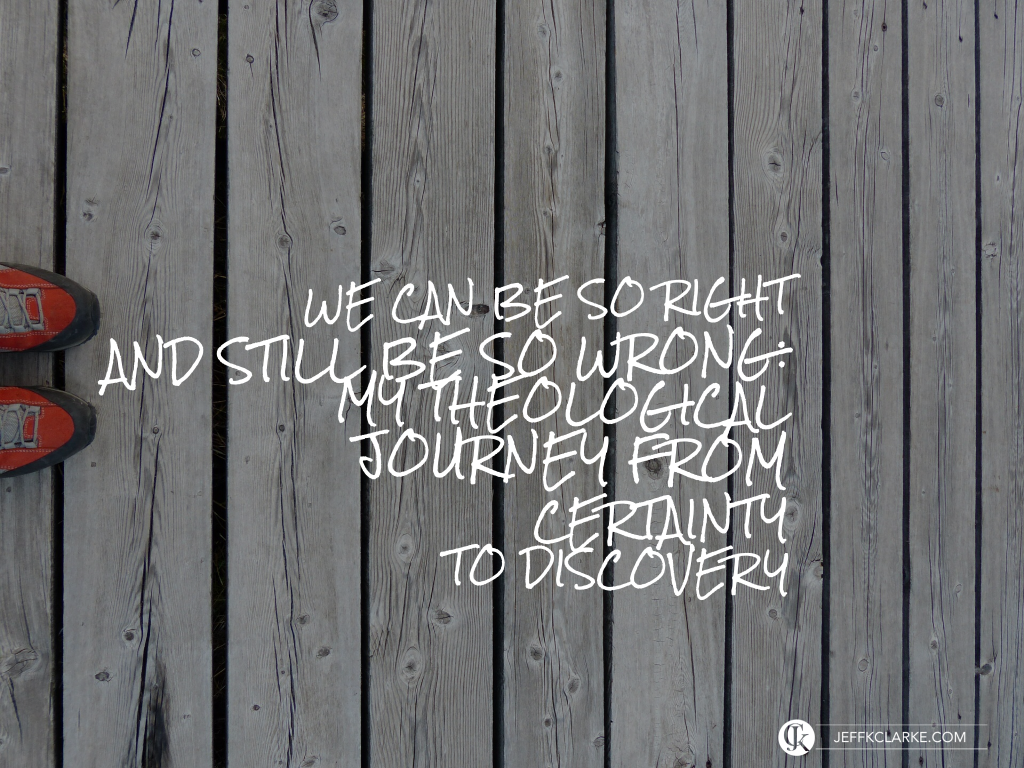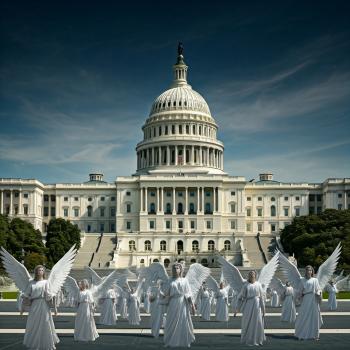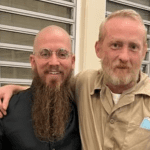*Guest Post by Jeff K. Clarke. He offers guest insights here on the Pangea Blog from time to time. I hope you enjoy!
My theological journey has less to do with changes made to specific categories, though many such changes have occurred, and more to do with the posture, mood and style in which I engage in the theological task.
In the past, my approach to theology and biblical studies could have been characterized as a strict, letter-of-the-law type attitude, that was determined to create the perfect, airtight theological system by seeking to ensure that every ‘t’ was crossed and every ‘i’ dotted.
As a result, I became very rigid in the way I approached theology and left little room for viewpoints that seemed, in my view, to color outside the lines. I was quick to judge theological ideas that did not fit neatly into my system and came to define people as either ‘in’ or ‘out.’
My theological posture was very rigid and often aggressive. I came to view Christian experience as suspect, holding out little possibility that it could add anything beneficial to my well-defined belief systems. I was all too eager to throw around words like heresy and heretic the moment I encountered what I thought was unorthodox theology.
In his book, Reformed and Always Reforming, Roger Olson briefly outlined the relationship between theological conservatives and fundamentalists as having
“a tendency toward harsh, polemical rhetoric and angry denunciations or ad hominem arguments when writing about fellow evangelicals with whom they disagree.”
Sadly, this was true of me.
For instance, in biblical studies, I came to prefer propositional truth statements over story, Paul over Mark, and didactic passages over poetry. As a result, I became fascinated with finding certainty in everything and came to approach theology with a highly defensive posture. Defend and conquer were my themes.
That all changed, however, when I met Clark Pinnock back in 1999. Though I later developed a deep appreciation for many of his views, the most valuable lesson I learned from him had to do with the way I actually did theology.
My journey was similar to his in that we shared a move from certainty to discovery; an openness to let our guard down and listen to what other voices different from our own could teach us. As a result, the biggest change for me came in my attitude and approach.
The results have been worth the risk. I no longer believe that I’ve arrived, but seek to be constantly aware of what is happening around me. While I feel confident in where I am today theologically, my posture is less concerned with certainty and more about being confident I’m on the right path. The rigidity has given way to openness; the certainty to discovery.
I came to share what Roger Olson described as a “spirit of adventure but not unfettered theological experimentation.” I became comfortable with uncertainty and ambiguity.
Quoting Olson again, I came to realize that “absolute truth is what God knows,” and “our grasp of truth is always from a certain finite perspective and infected with finitude and fallenness.” As a result, my response should be characterized by humility, not arrogance.
In the end, this is what the pursuit of truth should be for all of us –
- We should be confident of where we are, but open to where we could be; ever learning, growing and searching for truth, wherever it leads us.
- We should see the task of theology as unfinished, ever open to exploration and reformation.
- We should relinquish our constant demand for certitude and embrace our finitude.
- We should remember that not everything in life is black and white and that some things are a mixture of both.
- We should open ourselves up to embrace a posture of openness and humility, realizing that we are all in process and have yet to arrive.
In essence, our position should change from standing to walking – from immobility to mobility.
Some may criticize you for being a moving target, but so be it. I would rather be engaged in an exciting journey, full of expectation and surprises, than standing still.
And besides, this is far more fun!
What journey have you been on? I’d love to here about it.
References: Roger Olson, Reformed and Always Reforming: The Postconservative Approach to Evangelical Theology. Grand Rapids: Baker, 2007.
————————————
Jeff K. Clarke is a blogger and an award-winning author of articles and book reviews in variety of faith-based publications. He blogs regularly at Jesus (Re)Centered – informing | impacting | inspiring. He is on Twitter and Facebook.

















